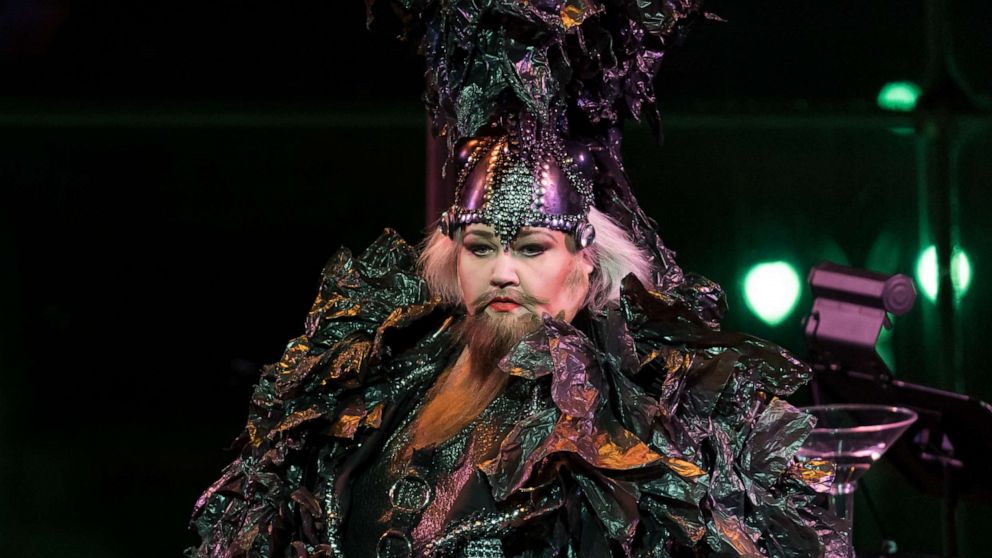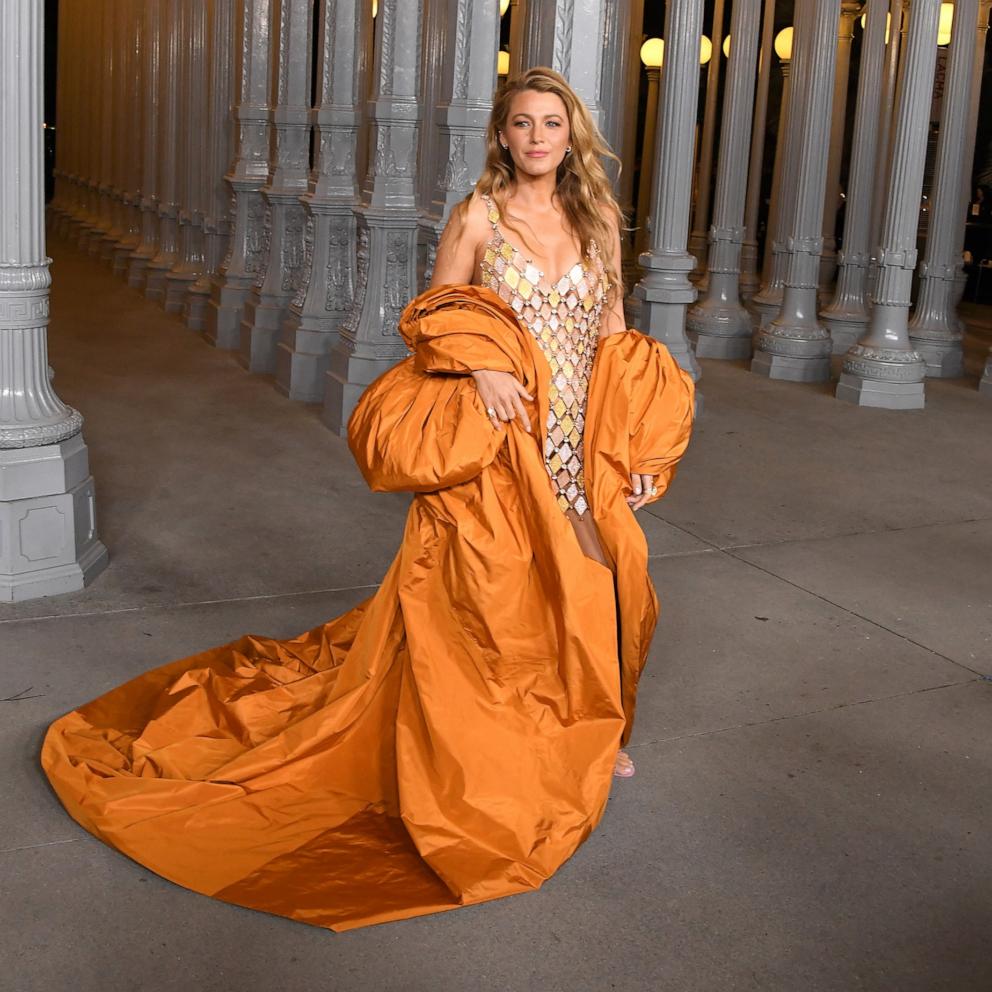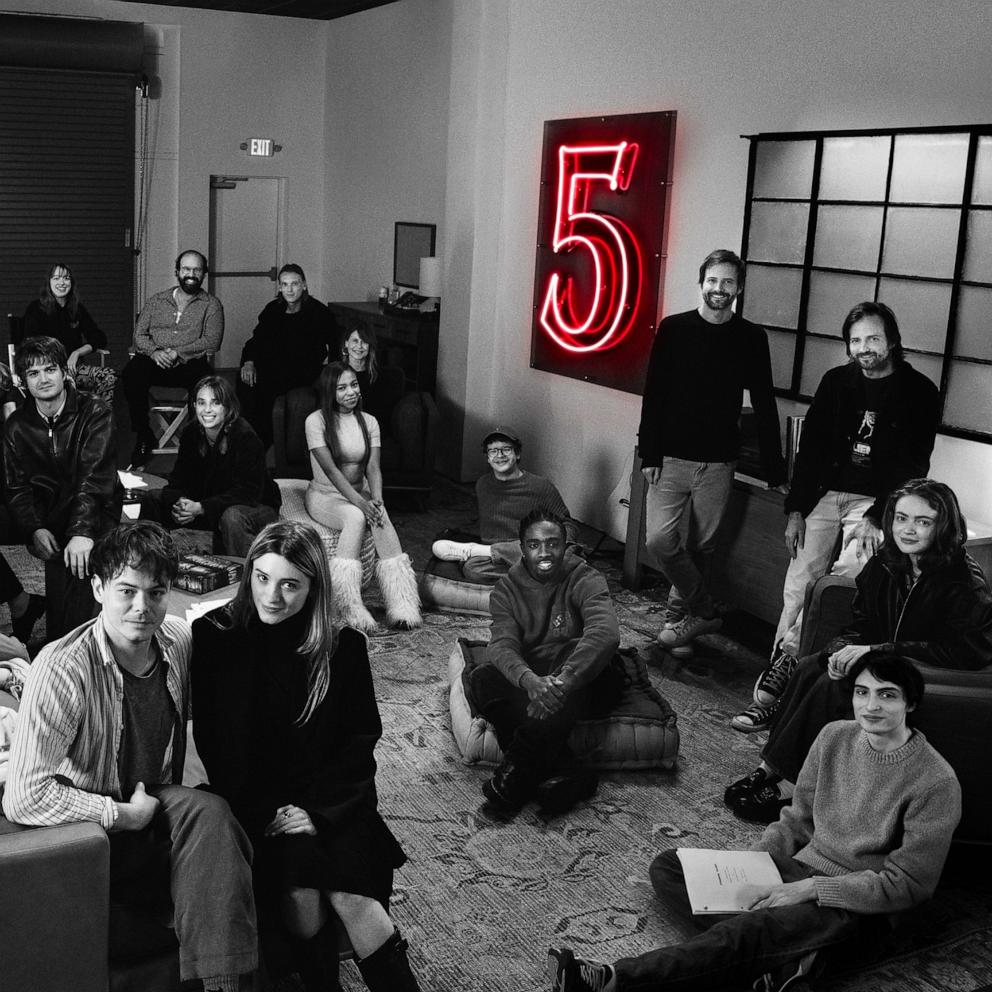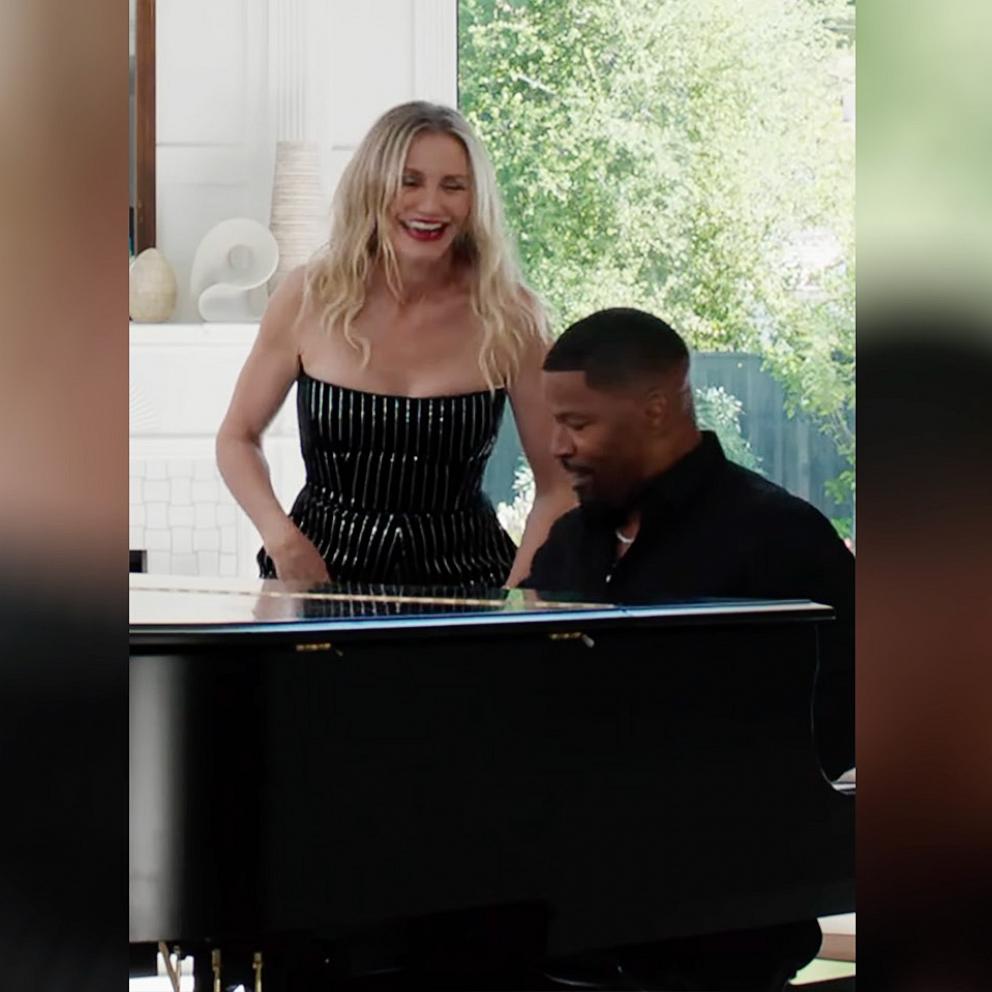Why opera star Stephanie Blythe started performing drag
Stephanie Blythe, 50, has spent half her life gracing the world's grandest stages, performing at the Metropolitan Opera as recently as 2019. While she still loves opera, she's found a new way to "break free" at this stage of her career -- namely by singing songs like Queen's "I Want to Break Free" while donning a fake beard.
It started as a fundraising concert along with The Bearded Ladies Cabaret group and Opera Philadelphia. There, Blythe performed in drag as "Blythely Oratonio," a dramatic tenor with a naughty sense of humor and a storied operatic career who secretly always wanted to be a rock singer.
The American singer found it "incredibly liberating and incredibly exciting" to perform as Blythely. So, along with co-writer and director John Jarboe, she developed a show to take on the road, first with a 30-minute performance at the Resonant Bodies festival in Brooklyn and, in late January, with a longer event at Lincoln Center's American Songbook series.
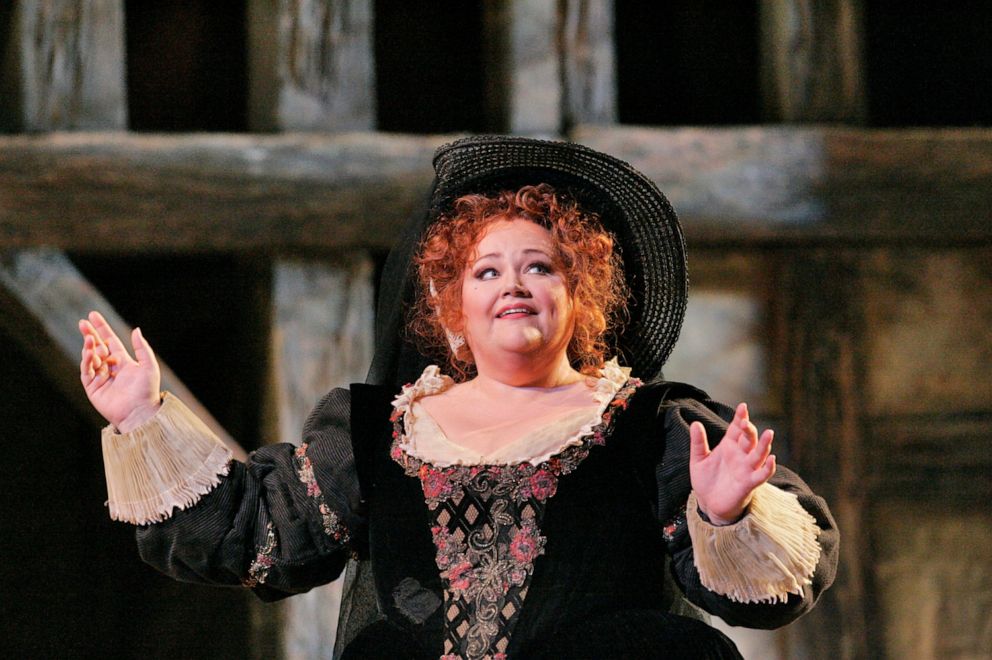
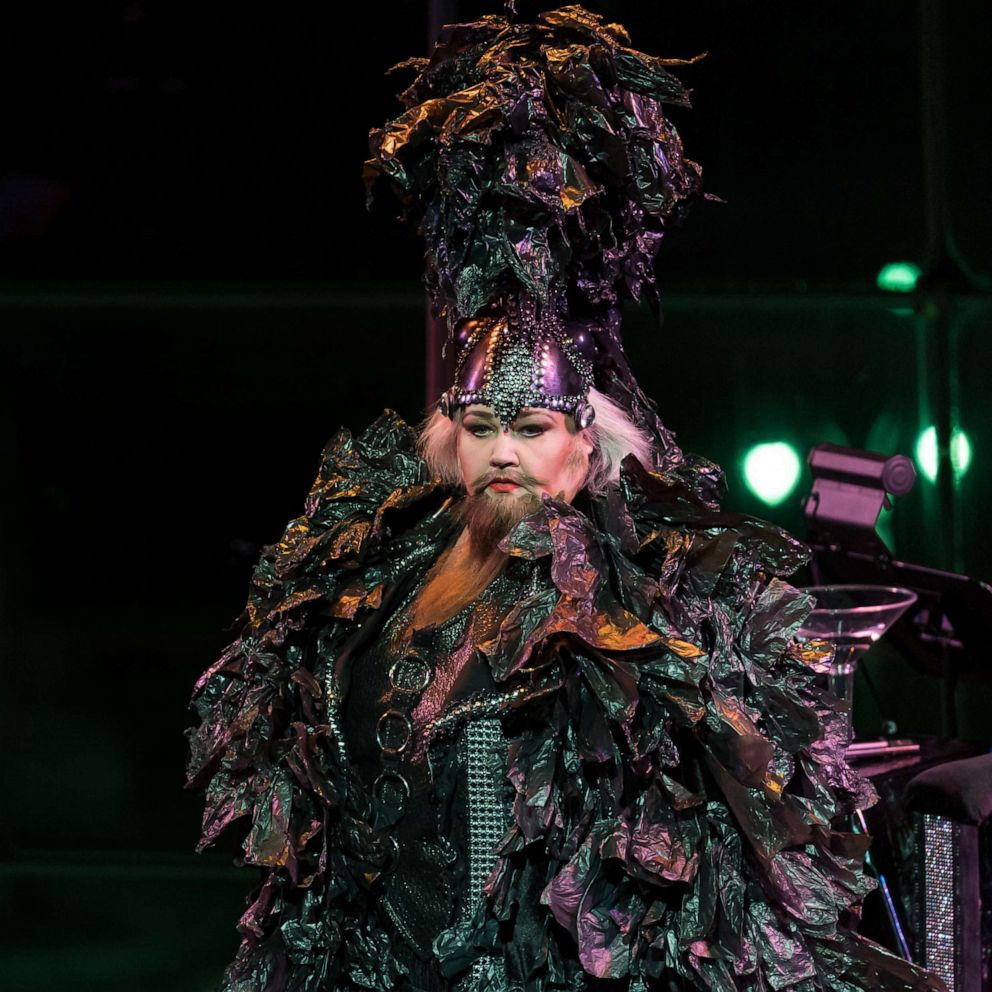
"There is an element of spectacle to it, of course -- it's a drag show," Blythe told ABC News days before the performance at Lincoln Center. "But underneath all that there is humanity and honesty; the piece has become quite autobiographical."
Blythe, who has done her own stage makeup for years, wears glued-on facial hair as Blythely along with fantastical capes and headwear by Machine Dazzle with Rebecca Kanach. She says Blythely was born out of playing around with her sister as a kid as the bionic character Steve Austin.
As a mezzo-soprano, Blythe's voice sits on the lower end of a woman's range, which overlaps with that of a tenor. So Blythe doesn't have to stretch much -- or at all, really -- to be able to sing songs typically sung by men, as she did on the Met's float at New York's Pride parade last year (she's been an LGBTQ ally since she was a teen).
Blythe as Blythely sings classic tenor arias, like "Nessun dorma," along with classic rock, like Rick Springfield's "Jessie's Girl." The musical arrangements, by Daniel Kazemi, shine when genres cross, like in a mashup of the musical staple "Send in the Clowns" and the aria "Vesti la giubba," which comes from the opera "Pagliacci," where it's sung by the titular clown -- a guitar lick from Radiohead's "No Surprises" also makes an appearance.
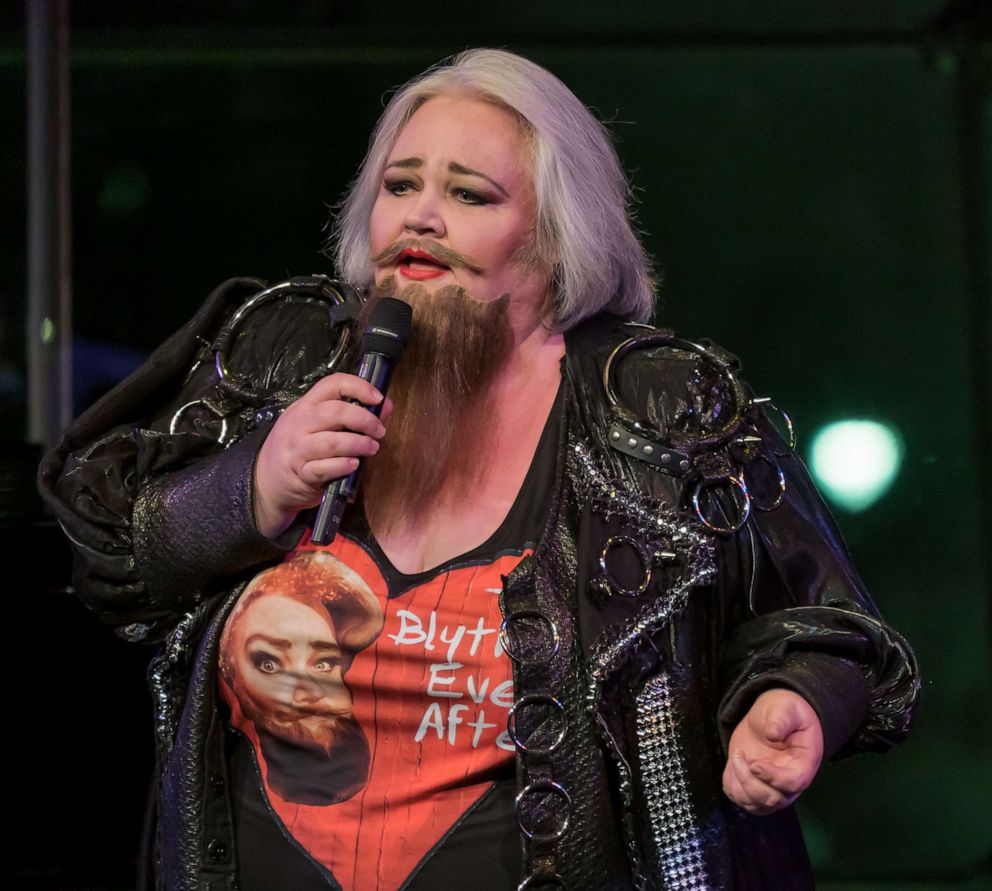
"Rock and roll and opera live in the same house," Blythe told ABC News. "Drag and opera live in the same house -- on different floors and some has a little more glitter and some has a little more spandex ... but it's all about extravaganza and heart."
Rather than a straightforward recital, Blythe and Jarboe created a full narrative arc reminiscent of "Hedwig and the Angry Inch" that addresses sexism and sizeism the singer has faced. Blythely, Blythe said, gives her a voice to say "things that I would never say in public. He's much more bold."
Among those bold pronouncements? A middle finger and a "f--- you" to those who told Blythely he was "too big" to be a rock star, and a call for the death of operas written 200 years ago by men about dying women performed unimaginatively.
But really, Blythely's emphasis is on celebrating, rather than mourning, the "transitions" of life. For Blythe, the show operates on two levels: it is both a call for that celebration and a response to that call as it gives her a way for "to be the performer that I am today."
"It's very difficult to be a 50-year-old singer and looking back at 25-year-old me and knowing that you can't repeat that. You can't repeat it. That's the thing that's so crazy about being a performer: Every moment that we have is an unrepeatable moment and there is something of a loss there," she said. "What's wonderful about this show, for me, is it's a show that gives birth. It's not a loss; it's a birth."
"Having an opportunity to face that, head-on, in front of an audience, is terrifying -- and freeing," she said. "It's unbelievably freeing and incredibly joyful, because there's not a single person in the audience that cannot identify with it. Everyone -- no matter what you do in your life -- every single person is going through some sort of transformation."
